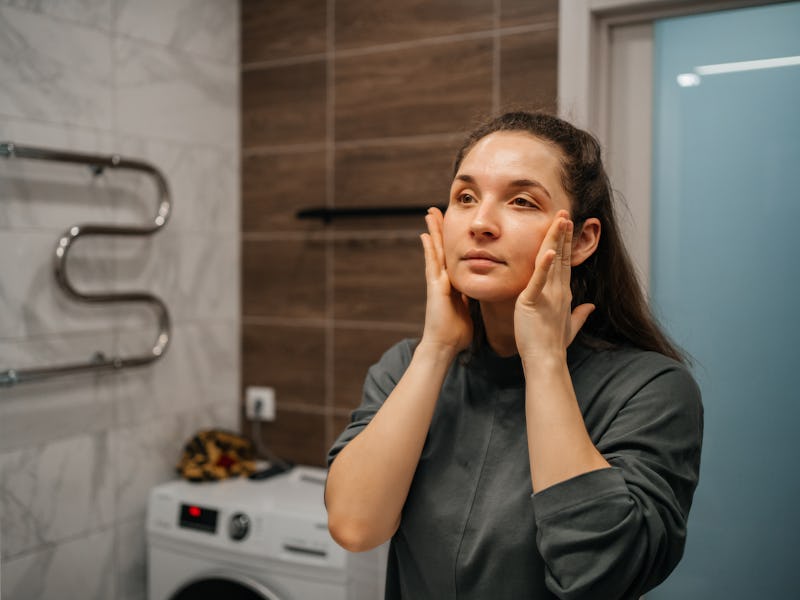At-Home Facial Exercises Claim to Reverse Aging — Experts Reveal What They Really Do
Influencers say these exercises can improve face sagging and reduce wrinkles. Experts aren’t so sure.

In 2021, the anti-aging industry’s worth was estimated at $62.6 billion. Much like aging itself, the industry shows no signs of slowing down. With all the serums, creams, peels, procedures, and even surgeries out there, getting older has gotten perpetually more expensive and time-consuming.
So it may seem like a boon that influencers demonstrate simple, cost-free, at-home facial yoga exercises that ostensibly slim your neck, define your jaw, and shape your nose.
Influencers say these exercises — which entail anything from lifting your chin as high as it can go, pressing your tongue to the roof of your mouth, smushing your cheeks upward, and rubbing your forehead from side to side — can improve face sagging and reduce wrinkles and are done for anywhere between just 60 seconds and 20 minutes daily.
But do they actually work? Alan Matarasso, a cosmetic surgeon in New York City, says these exercises don’t accomplish all that much.
“None of these [exercises] are going to ever do what a lift surgically does.”
“None of these [exercises] are going to ever do what a lift surgically does,” Matarasso tells Inverse. These influencers may claim that these exercises work because they strengthen your facial muscles, reducing sagginess and creating a tighter, slimmer appearance. But, it would take a great deal of exercise to grow the facial muscles enough that they do any actual lifting.
The face contains 44 muscles, most of which are narrow, thin, and “smaller than the tip of your finger,” Matarasso says. To change the face’s shape, the muscle fibers would need to hypertrophy or increase in size. “The amount of hypertrophy you would have to create to expand the skin and lift it would be extraordinary,” he tells Inverse.
Moreover, some face-strengthening exercises can backfire. “Wrinkles form where muscles are,” Matarasso says. “So when you keep raising your forehead or smiling a lot, you’re creating lines.”
That’s not to say that facial exercises and massages have zero benefits. Many of these exercises focus on releasing tension, which doesn’t ingrain wrinkles, instead of strengthening muscles. Stimulating muscles and massaging soft tissue promote circulation in the face, which can create a healthier appearance on its own, though it won’t lift anything.
Some face-strengthening exercises can backfire. “Wrinkles form where muscles are,” Matarasso says. “So when you keep raising your forehead or smiling a lot, you’re creating lines.”
Massaging can also reduce facial puffiness. The lymphatic system, which functions as part of your immune system to remove excess fluid, waste, and cell abnormalities, produces the clear, watery liquid called lymph. Massaging the face can expedite lymph draining, which will reduce normal morning swelling.
When it comes to demonstrating the science behind face yoga and skin lifting, Matarasso says it’s tough to be rigorous. Since the basis of science is comparison, it’s difficult to find a definitive answer without a control group. In 2018, the journal JAMA Dermatology published a research letter that described itself as “the first clinical trial to assess facial exercise as a modality for improving skin appearance” and found these exercises to effectively lift skin. For one, these exercises were 30 minutes daily, which many people have enough trouble devoting to bodily exercise. Still, this methodology is subject to conflating results from other interventions.
Matarasso emphasizes that maintaining a youthful, healthy appearance is a matter of prevention rather than correcting after the fact. As such, the one failsafe tip he has to offer may sound frustratingly familiar: “If I had to give you one bit of advice, it’s sunblock.”